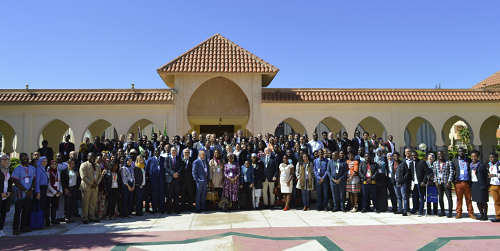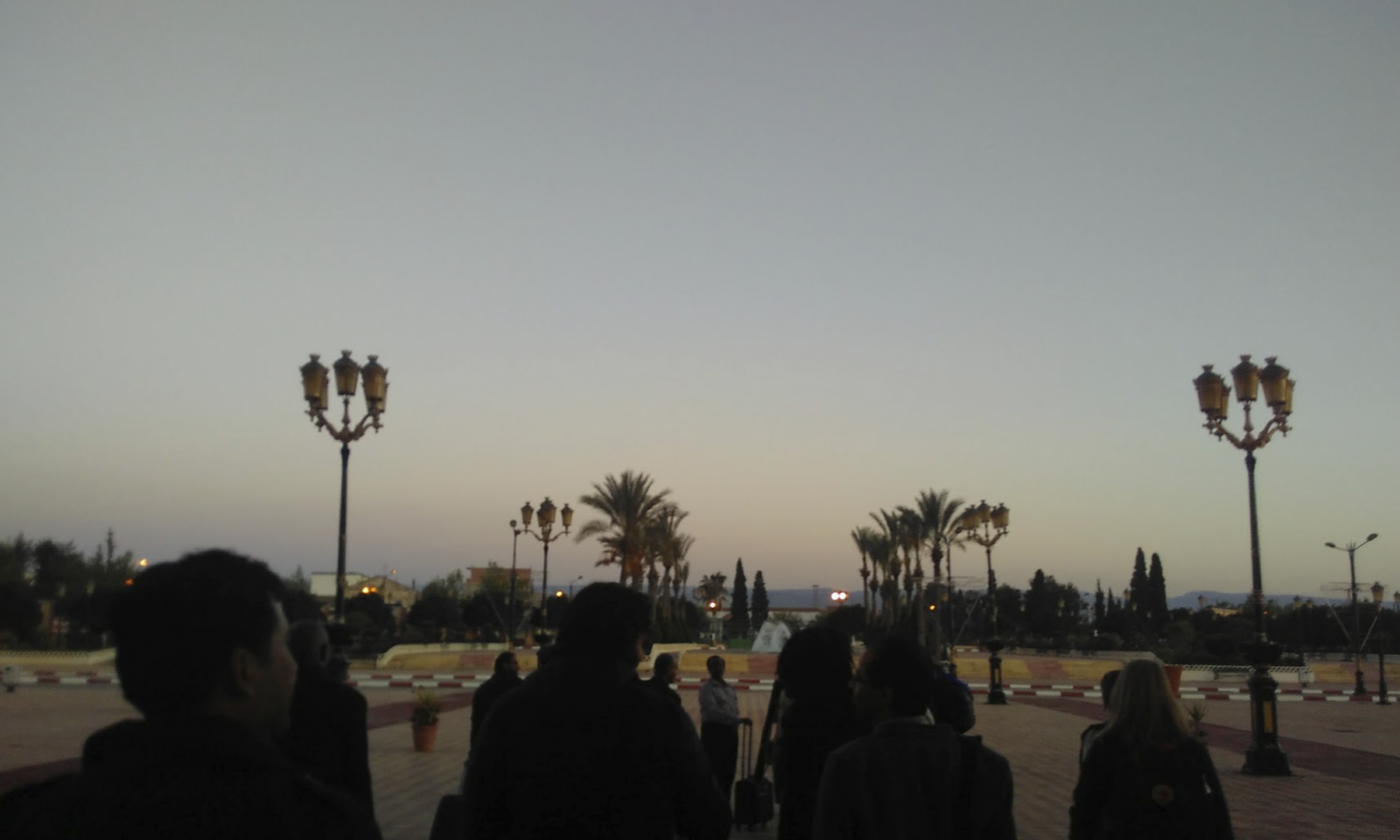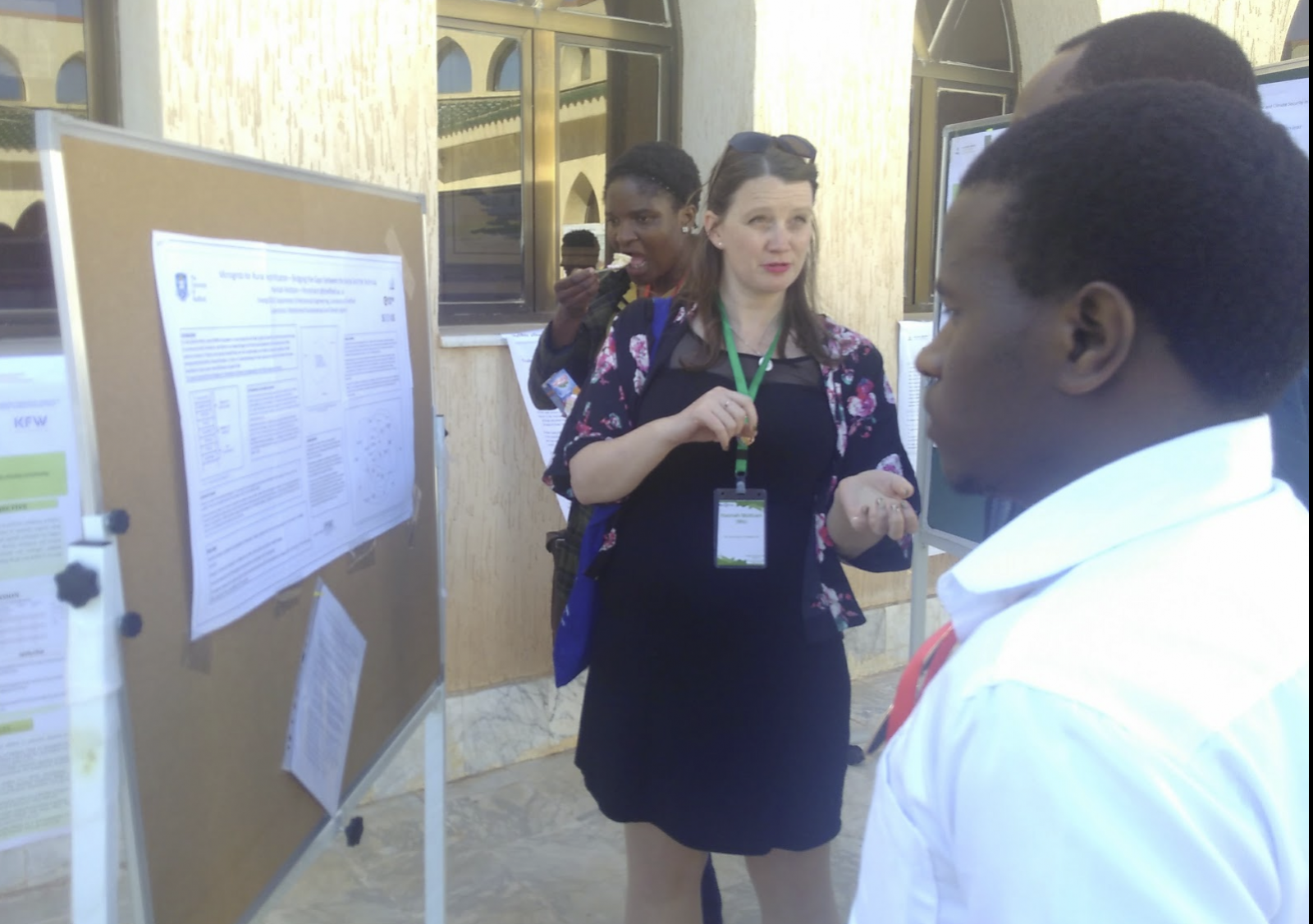
In this blog, PhD students Hannah Mottram (University of Sheffield) and Peter Thomas (Bristol University), provide highlights of their participation in the 2018 PAUWES Research 2 Practice Forum held from 16 to 18 April 2018 in Tlemcen, Algeria.
Participants from over 40 countries discussed the latest research in the nexus of energy, water and climate change with the overall objective of ensuring the aims of Agenda 2063 and the Sustainable Development Goals are achieved as quickly and efficiently as possible.

The forum highlighted how water, energy and climate change are very closely linked, and why it is difficult to think about one without considering the others. For example, Dr Ruben Mouangue from the University of Ngaoundere, Cameroon, spoke about the prospect for using wind energy as a resource for water pumping for agriculture. Research into renewable energy has a role in reducing potential carbon emissions, but also for building communities' resilience to future climate change.
We had the opportunity to meet with both established and young aspirational academics from across Africa. Their knowledge of a broad range of geographies, through both research and lived experience, bought a diversity of inputs to discussions. We presented posters on our research and were able to discuss opportunities to collaborate with fellow PhD students.

The forum was also attended by policy makers and representatives from the private sector. Collaboration between these groups is vital for research to have a positive impact, and also to maximise the information and skills available. The important role of civil society organisations in both research and implementation was raised, particularly at a local level with grass-roots groups.
The role of transdisciplinary teams, including active participation with communities, was discussed in a presentation on fuels for clean cooking by Dr Mary Njenga from the World Agroforestry Centre in Kenya. They found that whilst an understanding of technologies and sustainability was important, it was vital to consider the cultural implications and work with communities to design solutions.

The forum culminated on the final day with a cultural tour of Tlemcen. We were fortunate enough to visit the 40km long, 65,000 year old cave system of Ain Beni Add and the El Mechouar Palace dating from 1145 and once the official residence of Zayyanids, the kings of the Kingdom of Tlemcen.
The forum was an excellent showcase of the breadth and quality of research taking place across the African continent on energy, water and climate change. It provided a platform for engaging debate and conversation with researchers, practitioners and policy makers. We have no doubt that conversations and research ideas generated here will develop into impactful research projects in the near future.
Hannah Mottram is studying rural microgrids and how to bridge the gaps between social and technical evaluation with Energy 2050 and the Sheffield Institute for International Development.
http://siid.group.shef.ac.uk/team/hannah-mottram/
http://energy2050.ac.uk/people/hannah-mottram/
https://twitter.com/miss_mottram
Peter Thomas is studying energy access in humanitarian relief, focussing on refugee camps in Rwanda at Bristol University in partnership with Practical Action.
http://www.bristol.ac.uk/engineering/people/peter-j-thomas/index.html
